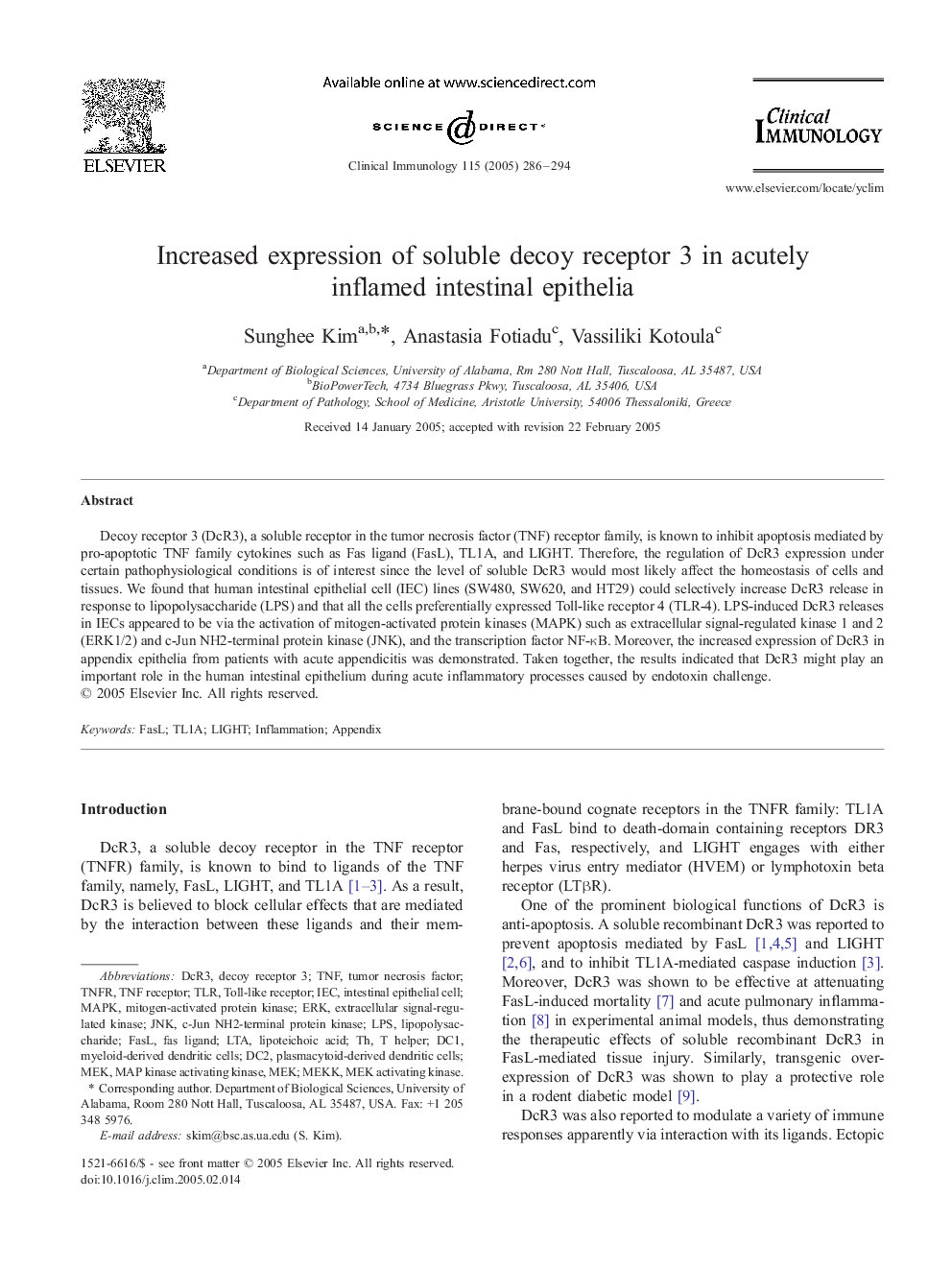| Article ID | Journal | Published Year | Pages | File Type |
|---|---|---|---|---|
| 9236699 | Clinical Immunology | 2005 | 9 Pages |
Abstract
Decoy receptor 3 (DcR3), a soluble receptor in the tumor necrosis factor (TNF) receptor family, is known to inhibit apoptosis mediated by pro-apoptotic TNF family cytokines such as Fas ligand (FasL), TL1A, and LIGHT. Therefore, the regulation of DcR3 expression under certain pathophysiological conditions is of interest since the level of soluble DcR3 would most likely affect the homeostasis of cells and tissues. We found that human intestinal epithelial cell (IEC) lines (SW480, SW620, and HT29) could selectively increase DcR3 release in response to lipopolysaccharide (LPS) and that all the cells preferentially expressed Toll-like receptor 4 (TLR-4). LPS-induced DcR3 releases in IECs appeared to be via the activation of mitogen-activated protein kinases (MAPK) such as extracellular signal-regulated kinase 1 and 2 (ERK1/2) and c-Jun NH2-terminal protein kinase (JNK), and the transcription factor NF-κB. Moreover, the increased expression of DcR3 in appendix epithelia from patients with acute appendicitis was demonstrated. Taken together, the results indicated that DcR3 might play an important role in the human intestinal epithelium during acute inflammatory processes caused by endotoxin challenge.
Keywords
LTAMEKKTNFc-Jun NH2-terminal protein kinaseDC2DcR3TL1AT helperTNFRTLRLPSJnkDC1ERKMAPKAppendixlipoteichoic acidinflammationToll-like receptorintestinal epithelial cellFas LigandFasLtumor necrosis factorlipopolysaccharideMEKlightmitogen-activated protein kinaseIECextracellular signal-regulated kinaseTNF receptorDecoy receptor 3
Related Topics
Life Sciences
Immunology and Microbiology
Immunology
Authors
Sunghee Kim, Anastasia Fotiadu, Vassiliki Kotoula,
